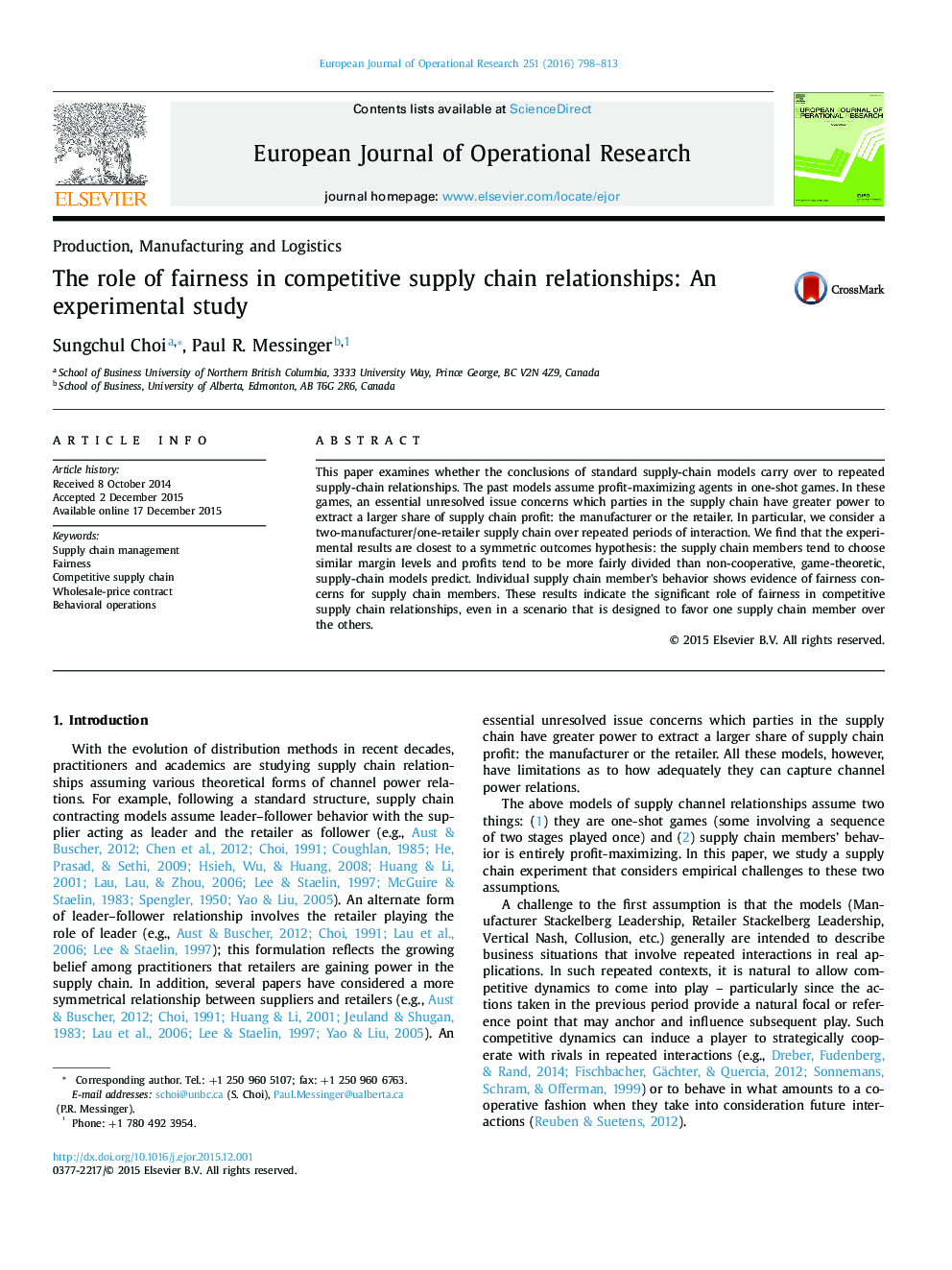| Article ID | Journal | Published Year | Pages | File Type |
|---|---|---|---|---|
| 477913 | European Journal of Operational Research | 2016 | 16 Pages |
•The applicability of profit-maximizing predictions of supply chain contracting games.•The dynamic behavior in the presence of competition at the supplier level.•Supply chain members do not fully exploit their strategic advantages.•The significant role of fairness in competitive supply chain relationships.
This paper examines whether the conclusions of standard supply-chain models carry over to repeated supply-chain relationships. The past models assume profit-maximizing agents in one-shot games. In these games, an essential unresolved issue concerns which parties in the supply chain have greater power to extract a larger share of supply chain profit: the manufacturer or the retailer. In particular, we consider a two-manufacturer/one-retailer supply chain over repeated periods of interaction. We find that the experimental results are closest to a symmetric outcomes hypothesis: the supply chain members tend to choose similar margin levels and profits tend to be more fairly divided than non-cooperative, game-theoretic, supply-chain models predict. Individual supply chain member's behavior shows evidence of fairness concerns for supply chain members. These results indicate the significant role of fairness in competitive supply chain relationships, even in a scenario that is designed to favor one supply chain member over the others.
